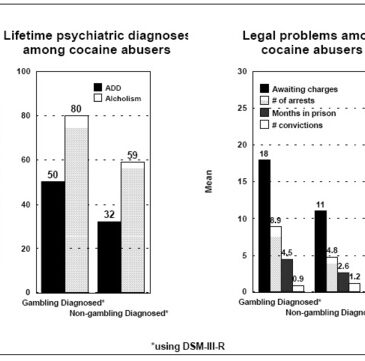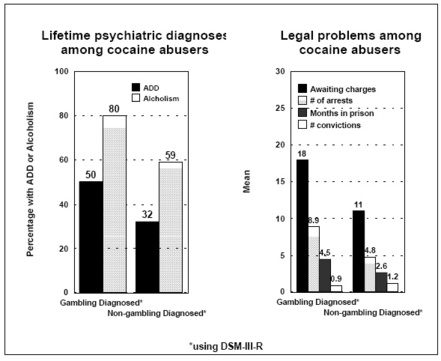Research consistently has shown that substance abusers have higher rates of pathological gambling than those not involved in substance abuse. A recent study* found that 14.8% of 298 adult cocaine abusers had a lifetime diagnosis of pathological gambling. This study also explored differences between cocaine abusers who were diagnosed with a gambling disorder and those that were not. One of this study’s hypotheses was that cocaine-abusing patients having a gambling disorder would also experience more severe clinical problems. This study provided evidence to support this hypothesis. Specifically, cocaine abusers diagnosed with a gambling problem had more severe psychiatric problems, more severe substance abuse histories, and were more likely to have had a history of attention deficit syndrome (ADD) than those without a gambling disorder. Cocaine abusers with a gambling problem also were more likely to be alcohol dependent, had significantly more drug overdoses, and had undergone significantly more treatment attempts for alcohol and for other drugs than cocaine abusers without a gambling problem. In addition, the gambling-diagnosed group had more legal problems on average than the non-gambling diagnosed group. The researchers point out that some coexisting problems develop before problem gambling (e.g., ADD), while others develop after problem gambling (e.g., legal problems). Exploring the comorbidity of gambling problems enables further understanding of both precursors and consequences of disordered gambling, with implications for treatment.
Source: *Steinberg, M.A., Kosten, T.A., & Rounsaville, B.J. (1992). Cocaine abuse and pathological gambling. The American Journal on Addictions, 1(2), 121-132.
This public education project is funded, in part, by The Andrews Foundation.





